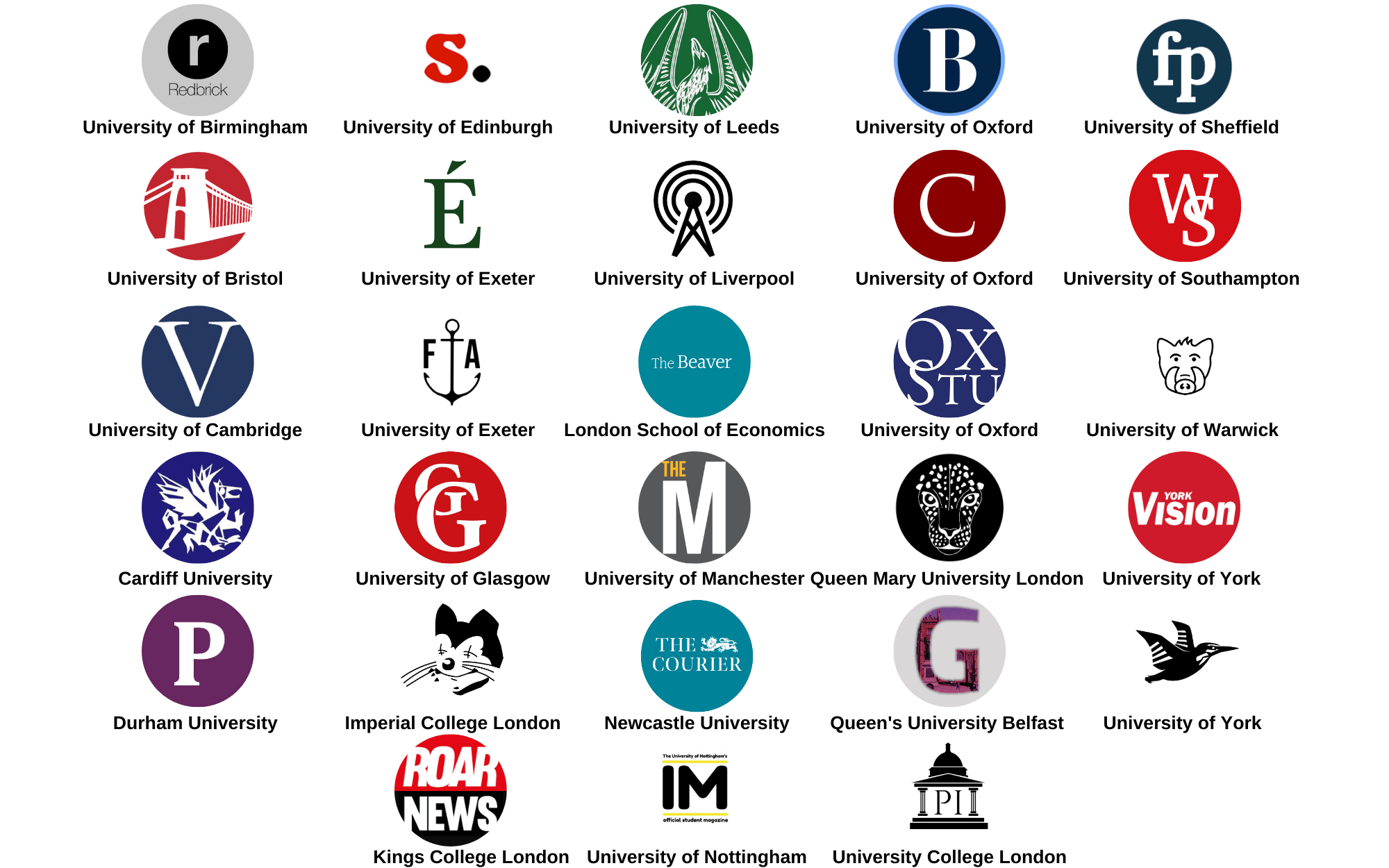Why GPA isn’t the whole story for UK PhD scholarships

-
UK PhD funding is research-focused. Funders and supervisors prioritize:
-
Clear, plausible research questions and methodology.
-
Fit between the applicant’s interests and the supervisor/department agenda.
-
Evidence of research potential: project work, publications, conference presentations, lab or field experience, or strong research proposals.
-
References that speak to your research aptitude and independence.
-
-
Many scholarships are awarded to applicants who show exceptional research promise regardless of class rank. Professional experience, portfolios, relevant master’s research, internships, or industry projects can outweigh a lower undergraduate grade.
-
Funding bodies (including institutional studentships, UKRI, charities, and industry-sponsored projects) often evaluate cohorts holistically. A compelling research idea and a supervisor’s advocacy can tilt decisions in your favour.
(If you want a quick look at the Russell Group membership and research strengths, visit the Russell Group site. For core UK doctoral funding principles and major schemes, see UK Research and Innovation.)
Full PhD Scholarship UK Russell Group — how to think like a funder
Think about the funder’s perspective. They are buying a research output: PhD completion, publications, collaborations, and reputation. Their priorities are:
-
Low risk of dropout.
-
High probability of original outputs (publications, patents, policy impact).
-
Fit with strategic priorities (department or funder thematic areas).
-
Supervisor capacity and track record in supporting students.
So your job is to lower perceived risk and raise expected output. You do that by demonstrating research readiness and a plan to deliver.
No GPA Above 3.5 Needed — 9 things that can replace a high GPA
(Keyword integrated: “No GPA Above 3.5 Needed”)
If your GPA is below 3.5, double down on everything else. Here are nine practical strengths to develop and showcase:
-
A strong Master’s or research project. A distinction or excellent dissertation in a relevant master’s is often more persuasive than undergraduate GPA.
-
Publish or present. Even a conference poster or a preprint shows research capability and motivation.
-
Work or lab experience. Industry placements, research assists, or professional roles aligned to your topic.
-
Clear, focused research proposal. Demonstrate methodological knowledge and feasibility; include timelines and outputs.
-
Excellent references. Supervisors who can speak directly to your research aptitude and potential are gold.
-
Technical skills or tools. Coding, statistical analysis, lab techniques, GIS, or qualitative analysis can be decisive.
-
Funding fit and alignment. Apply for scholarships whose remit matches your topic — thematic fit beats GPA.
-
Personal statement that tells a research story. Explain growth, limitations in grades (if necessary), and how your experience prepared you for research.
-
Network and supervisor buy-in. An interested supervisor who champions you internally often decides funded offers.
How to identify the “secret” funding routes (beyond standard university scholarships)
-
Project studentships (supervisor-led or grant-funded). These rarely focus on GPA; they want someone who can deliver the project’s aims. Supervisors choose candidates that match skills and temperament.
-
Departmental studentships allocated to supervisors. If a supervisor has discretionary funding, your relationship and proposal matter most.
-
Industry or charity-sponsored PhDs. Sponsors care about practical skills and relevant experience.
-
Externally-funded fellowships (e.g., Commonwealth, country-specific trusts, or research councils). These have criteria but also recognize diverse potential.
-
Collaborative DTPs/CDTs (Doctoral Training Partnerships / Centres for Doctoral Training). Cohort funding often targets strategic topics — fit is decisive.
-
Teaching assistantships or RA positions that convert to funded PhDs. These let you build trust and demonstrate research aptitude from within the department.
Table: Quick comparison of common UK PhD funding routes
| Funding route | Typical decision makers | Main selection criteria | GPA weight | Best strategy if GPA < 3.5 |
|---|---|---|---|---|
| Project studentship (PI- or grant-led) | Supervisor / PI & project team | Technical fit, experience, interview | Low | Highlight technical skills & project experience |
| University-funded studentship | Dept selection panel + supervisors | Research proposal, references, fit | Medium | Secure supervisor support & outstanding proposal |
| UKRI / Research Council studentship | Panel of academics | Research quality, training, impact | Medium | Apply via DTP & emphasize training benefits |
| Charity/industry-funded scholarship | Sponsor & university | Alignment with sponsor goals, skills | Low–Medium | Show practical impact & prior relevant work |
| Self-funded converted to funded RA | Supervisor | Performance as RA | Low | Use RA work to demonstrate competence |
| International scholarships (e.g., Commonwealth) | External trust | Academic potential, country criteria | Varies | Strong narrative + production/dissertation evidence |
Step-by-step roadmap to a funded PhD at a Russell Group school (practical)
-
Select 6–12 target supervisors and topics
-
Look for supervisors publishing in the precise niche you want. Read recent papers and cite them in your application.
-
Email supervisors with a concise, customized message: 3-line intro (who you are), 3-line pitch (your relevant experience), 3-line ask (can we discuss a project or funding?). Attach a 1-page research idea and CV.
-
-
Build a compelling 2–3 page research proposal
-
Title, 150–300 word abstract, research questions, methods, timeline (months 1–36), expected outputs (papers, dataset), ethical considerations, and required resources.
-
Include a short literature gap statement referencing 3–5 key papers (show you’ve read widely).
-
-
Secure excellent references
-
Choose referees who can speak to your research skills (master’s thesis supervisor, industry R&D manager, or a lecturer you worked with on a project).
-
Provide referees with your CV, proposal, and bullet points to make their letters focused.
-
-
Fill skill gaps quickly
-
Short online courses, certificates, or a small reproducible project can be enough to demonstrate capability (e.g., GitHub repo, reproducible analysis, lab protocol).
-
-
Apply widely but smartly
-
Apply for multiple studentships and for open PhD posts, but tailor each application to the funder’s expectations.
-
-
Prepare for interviews
-
Expect detailed questions on methodology, feasibility, and contribution. Use the STAR method for behavioral examples and come with a 5-minute project pitch.
-
-
Negotiate supervisor support
-
If a supervisor is convinced, they can often secure internal funding for you. Prioritize relationships over chasing a single advertised scholarship.
-
-
Leverage networks
-
Attend conferences, reach out to alumni, or use professional LinkedIn posts about your research idea to attract attention.
-
Email template that gets replies from supervisors (short, practical)
Subject: Prospective PhD student — [your name], [brief topic phrase]
Dear Prof. [Surname],
I’m [Your name], with an M[Sc/MRes] in [field] from [University]. I’m very interested in researching [one-line topic], especially inspired by your recent paper on [specific paper—one-sentence link to their work]. I have experience in [one or two technical/field skills], and my master’s dissertation evaluated [very short description of findings].
I’d appreciate 10–15 minutes to discuss potential PhD projects or any funded studentships in your group. I’ve attached a one-page research idea and CV.
Thank you for your time,
[Your name] | [Email] | [LinkedIn or personal website]
What to write in your personal statement when GPA is low
-
Acknowledge briefly (only if necessary). Don’t sound defensive.
-
Tell a story of growth: highlight how research experience in your master’s, work, or projects prepared you for doctoral work.
-
Be specific about what you will do and why it matters.
-
Highlight outputs and transferable skills: coding, lab techniques, teaching, project management.
-
Explain unique perspectives or lived experiences that add value to your research team.
How to make a research proposal that funders love
Use a four-part structure for clarity and impact:
-
Hook (0.5 page): short problem statement—why it matters to the field or society.
-
Background & gap (0.5–1 page): what’s known, what’s missing, and the specific research question.
-
Methodology & feasibility (1 page): methods, datasets, equipment, key milestones, and risk mitigation.
-
Impact & outputs (0.5 page): how results will be shared (journals, datasets), training benefits, potential collaborations.
Make it readable: short paragraphs, bullets, and a clear timeline. Supervisors and panels value a pragmatic, deliverable plan.
Interviews & viva-like assessments — what they really probe
-
Is the project feasible? Be ready to justify timelines and methods.
-
Do you understand the methods? Talk about specifics (e.g., “I would run an initial pilot n=30, use mixed-effects models, and pre-register outcomes”).
-
How will you handle difficulties? Present backup plans.
-
Are you independent and resilient? Give examples of overcoming research obstacles.
-
Can you be part of the department? Fit matters—demonstrate collaborative instincts.
Two real-world success patterns (no GPA hero stories, but repeatable strategies)
-
The Master’s rebound
-
Candidate has an average undergraduate GPA but finished a research-focused master’s with distinction and a publication. The supervisor who supervised the master’s recommends them strongly; the candidate is hired on a grant project studentship.
-
-
The industry pivot
-
Candidate has practical industry experience (R&D) with demonstrable outputs (patents or product). They propose a translational research PhD aligned to industry partnerships; sponsor provides funding despite lower GPA.
-
Both stories illustrate that research readiness and tangible outputs trump GPA alone.
Checklist — what to prepare before you apply
-
2–3 tailored research proposals (1–3 pages).
-
Updated CV focused on research skills (2 pages).
-
2–3 excellent referees briefed and documents supplied to them.
-
At least one supervisor contacted and engaged.
-
Evidence of technical skills (GitHub, lab notebook, dataset, portfolio).
-
Statement addressing funding and fit (how your project aligns with the funder).
-
Clear timeline with milestones and outputs.
-
Polished interview pitch: 3-minute and 15-minute versions.
Common myths and the real facts
-
Myth: “Russell Group universities will only accept students with >3.5 GPA.”
Fact: They prefer high GPAs, but many successful PhD candidates had lower undergraduate numbers and demonstrated research strength elsewhere. -
Myth: “Only UKRI funds count.”
Fact: Many credible routes exist: university studentships, charities, industry partnerships, and departmental funds. -
Myth: “You must be from a top undergraduate institution.”
Fact: Research fit and potential are decisive.
Two authoritative places to start (embedded links)
-
For an overview of research-intensive UK universities and their collective priorities: Russell Group — https://russellgroup.ac.uk
(Use this to identify target member universities and research strengths.) -
For an introduction to UK doctoral funding streams and major funders: UK Research and Innovation — https://www.ukri.org
(Useful for understanding studentships, Doctoral Training Partnerships, and funder priorities.)
I placed these links where they’ll help you plan target institutions and funding pathways.
What to do if you still get rejected — fast recovery plan
-
Request feedback. If a department provides critique, use it to improve your proposal.
-
Build visible outputs. Publish a short preprint, deliver a conference poster, or complete a small reproducible study.
-
Try a bridging master’s or research assistant role. Use it to create an internal referee who can later back a funded application.
-
Apply for smaller, local grants to demonstrate competitiveness.
-
Widen your search. Consider high-quality non-Russell Group universities—they also offer opportunities and sometimes less competition for certain niches.
Final checklist to make your GPA irrelevant
-
Target the right supervisors (fit beats prestige).
-
Have a clear, feasible, and compelling proposal.
-
Show evidence of research potential (publications, projects, skills).
-
Secure advocacy from a supervisor or a strong reference.
-
Apply to the right funding streams (project studentship, DTP, charity, industry).
-
Be persistent and treat rejection as feedback.
Closing: A humanized note — it’s about the story you bring
Your GPA might be a number, but your research story is the argument that will win you a funded PhD. Tell that story clearly: where you started, what you learned, what you will do next, and why you’re uniquely placed to deliver it. Funders bet on people who look prepared, honest, and driven. Be that person.

